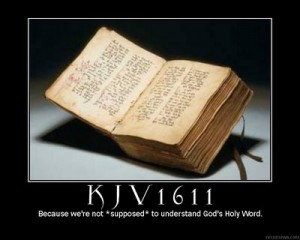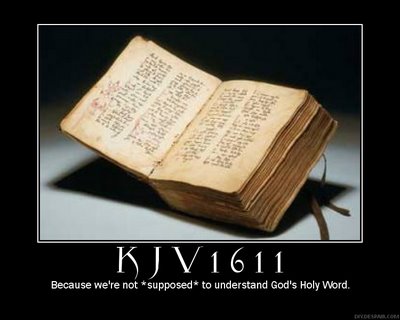In this episode, Mormon Matters host Dan Wotherspoon and panelists Kristine Haglund, Dallas Robbins, and Philip Barlow discuss two topics:
Matters host Dan Wotherspoon and panelists Kristine Haglund, Dallas Robbins, and Philip Barlow discuss two topics:
- The LDS Church’s recent reaffirmation of the King James Version as is its official Bible translation and
- The changes it has made to chapter headings in the online version of the Book of Mormon (changes that will be carried forward in future printings) that de-emphasize the idea of darker skin as a curse from God.
What is the significance of this renewed commitment to the KJV instead of switching to newer, more scholarly Bible versions based on older manuscripts, translated into more modern English, and increasingly the Bibles of choice for other Christians? What are the possible positive and negative impacts of the Church’s continued use of this translation–on missionary efforts, scriptural literacy among the rising generation, and so forth? What do the new Book of Mormon chapter headings say about the continued fading of Mormonism’s history of equating skin color with God’s blessing or cursing? What steps might be next? What steps should be next?


Comments 22
The church will have to stick with the KJV at the very least because of the confusion re: Elias v. Elijah. Treated as two persons (in the D&C) instead of as the Greek v. Hebrew names for the same person… well. “If there are faults they are the mistakes of men,” indeed — but mistakes in the D&C have far more serious implications than mistakes in the Bk of M. So the KJV, with its archaic language (though truly a masterful and poetic achievement for its day), continues to take precedence over better translations based on better source documents.
I understand the Church’s desire to stick with the KJV, and I support it. Honestly though, I think they need to redo most of the headings, footnotes (not necessarily the scripture links, but the “IE” “OR” and “HEB” notes), and Bible dictionary. It always frustrated me enormously when I was taking OT/NT classes (and Hebrew and Greek) at BYU, and my professors would explain how something was totally mistranslated in the KJV, or now we understand this story so much better because of comparison with the Dead Sea Scrolls, etc. I mean, I was happy to learn it for myself, but why isn’t it at our fingertips? My professors were very good at what they did, and they were quite faithful members of the Church – why aren’t we USING these resources? And I don’t even mean the stuff that’s still being debated – I mean translation fixes and DSS addendums that have been so widely recognized that they’re published as actual textual changes in modern Bibles.
Simply put, Mormons have recognized their apostles as “prophet, seer, revelator and translator.” However the last person who did any translating was a man named Joseph Smith…. (albeit with complications of capacity… ie kinderhook plates and book of abraham) they might as well drop the last two adjectives from the descriptors of their leaders.
@Elizabeth: I agree with you that the LDS scriptures’ headings and footnotes leave much to be desired. The reason we don’t see an update is the huge cost in time and money to produce a new edition of the Bible. The Church spent years preparing the current editions of the standard works, and I doubt they are ready to take on a similar project again anytime soon. Additionally, you should be careful what you ask for: the newer editions of the French, Spanish, German, Italian triple combinations, and the new ed. of the Spanish bible all have fewer footnotes and cross references, and largely maintain the same verbiage of the chapter headings in the English versions of these texts. When the Church gets around to updating the English scriptures, my guess is that you will see less, not more.
Instead, just pick up a Harper-Collins Study Bible (NRSV), or a New Oxford Annotated Study Bible (NRSV). These bibles’ footnotes take into account current scholarship on historical, archaeological, sociological, and doctrinal issues. These bibles are considered “Mainline Protestant” or “liberal Christian” in orientation, as opposed to Evangelical or Fundamentalist translations and interpretations.
I’m interested in why you recommend the NRSV. I’ve been trying to choose another translation for a while and had binned the NRSV for various reasons raised in:
http://www.faithalone.org/journal/1990ii/Farstad.html
and http://www.catholicinsight.com/online/church/liturgy/article_149.shtml
Is it the notes you recommend or the translation?
I would echo the recommendation about getting a New Oxford Annotated Study Bible. I use it for New Testament readings and generally understand things better. Thus far no meanings have been lost or distorted vs. the KJV, and some have been clarified.
I think because the other “inspired” scriptures received DIRECTLY from God (BofM, D&C, etc) are in KJV language, and, can therefore never be modernized without risk of chaning meaning, there’s no way the Church will ever abandon the same style of language in its KJV bible, sadly.
Lol. The church is funny that way. The gosh darn black skin thing keeps given em problems in Uganda and Samoa. Now to wipe it out of existence. I want me old church back that doesn’t pander to political correctness. And im not white!
But, how can god be love if there is still some supposed grudge? If you’re going by “old church” you should now be white. Or you aren’t right with the lord.
“or you aren’t right with the lord”
Or just “right” period. Remember, “If you’re white you’re right; if you’re brown, stick around; if you’re black, stay back.” So perhaps ‘william_of_ockham’ is at least brown gettinn’ around to turnin’ white.
I have two thoughts about this podcast I felt like sharing. First, it was quickly assumed (seemed like everyone agreed to it) that the Church has to choose a single version of the Bible. I feel like something very unique about Mormonism is the view that the Bible we have today is flawed. Most other high tension denominations are biblical literalists who lean heavily on the Bible for their doctrinal truth claims. Why did we agree that the Church must stand behind a particular version of the Bible?
I thought liberal Mormons were all about plurality (not of wives, necessarily) and ambiguity. Isn’t ambiguity good here? Maybe were are seeing here another example of how correlation tries to rid the church of diversity and ambiguity. It would have been interesting to discuss why or if we even need a single authoritative version to stand behind. I think that is the central issue here. It doesn’t really matter to me what version they stand behind. Why do they have to pick one?
Second, I heard a lot of praise for the aesthetic appeal of the KJV, but I was surprised that no one mentioned the cultural reasons why we might find it appealing. Maybe we like the KJV because we are comfortable with it. It is what we grew up with, and it feels right. Just like the casual prayers of some may seem disrespectful to Mormons; the formal prayers of Mormons may seem impersonal to others. We have different but equally valid perspectives.
Is the KJV really universally considered beautiful and elegant? Is it just the elitism we feel when understanding old English that draws us to it? Maybe we like it for the very reason we shouldn’t like it: it is difficult to understand. Maybe we King Jimmy clingers are just Biblical snobs!
I agree with Matthew Bryde above that the COJCOLDS will never abandon the KJV for the exact reasons he mentioned. I think it’s also interesting to note that even though the 8th AOF states that Mormons believe in the Bible as far as its translated correctly, one of the panelists on the podcast acknowledged that there are more accurate translations than the KJV.
One thing that really frustrated me about this podcast is when JS was excused for being a racist because “everyone was one back then.” The same argument has been used to excuse statements by BY and other Mormon leaders and it is simply not true that everyone in the 19th Century were racist. Our country fought a civil war over slavery and there were many people opposed to racism during this time.
I thought the comparison of the changes in the BOM to the changes in the Catholic Bible was very weak because in the former, there is no original text to examine.
In his book The Holy Temple, Boyd K. Packer quotes The New American Bible to indicate that 1 Corinthians 15:29 really does refer to baptisms on behalf of the dead. It’s on page 16. I’ve been thinking about this for several days, but only now getting around to comment! Great discussion!
For better or worse, the church is stuck with the KJV because it is what Joseph and incorporated into the BOM. Whatever else is wrong with it, it is consistent with the BOM.
Pingback: MM 23: The KJV and Changes to Race-Related Book of Mormon Chapter Headings
I think we should all go for something like Reader’s Edition for all scripture. Our current chapter and verse divisions are quite often confusing for anyone not familiar with the basic text.
Also, I run into a lot of people, who take chapter headings as scripture, when nobody’s presented them as anything else than study helps.
I think I read a lot of Bruce R. McConkie in the chapter headings, which is not always a good thing…
But the Civil War was fought not against slavery by against shattering the Union…
Don’t forget that the Bible is read by church members across the world. The church chooses an edition and sells it via the church distribution system in various countries. In each language, I am confident the church leadership is inspired as to which version to use so as to allow the members to understand the doctrine and maintain uniformity across the international church. They must also avoid a casualness with scripture that many translations espouse. The formal language of our scripture and prayer serves to elevate the level of respect and thought we give to each of these. Additionally, cost, copyright, and local legal restrictions concerning Bible translations are also a factor. I am basing these assumptions off of my familiarity with the English, Portuguese, and Spanish language versions of the Bible which the church uses.
I merely wish to point out that focusing solely on the English language ignores the balancing act the church plays as it grows internationally.
Joseph Smith Jr = false prophet
test it : Deut. 18. He fails!
One of the advantages of the Church sticking with the KJV is that it’s harder to understand, and most people will stick with the official manuals and with spoken word, which aren’t given in 17th century English. In this way the church can discourage members from reading the Bible too much.
Hey Devan. So how did Joseph Smith fail?
On General Authority usage of other translations, see here.
http://www.faithpromotingrumor.com/2007/02/elder-mcconkie-and-targumim-or-how-to-help-lds-read-non-kjv-versions/
The irony that the authorised Bible of the Church of England is the translation of the the ” true Church” is incredible. Phrases in the preface to the KJV are actually used in the Book of Mormon.